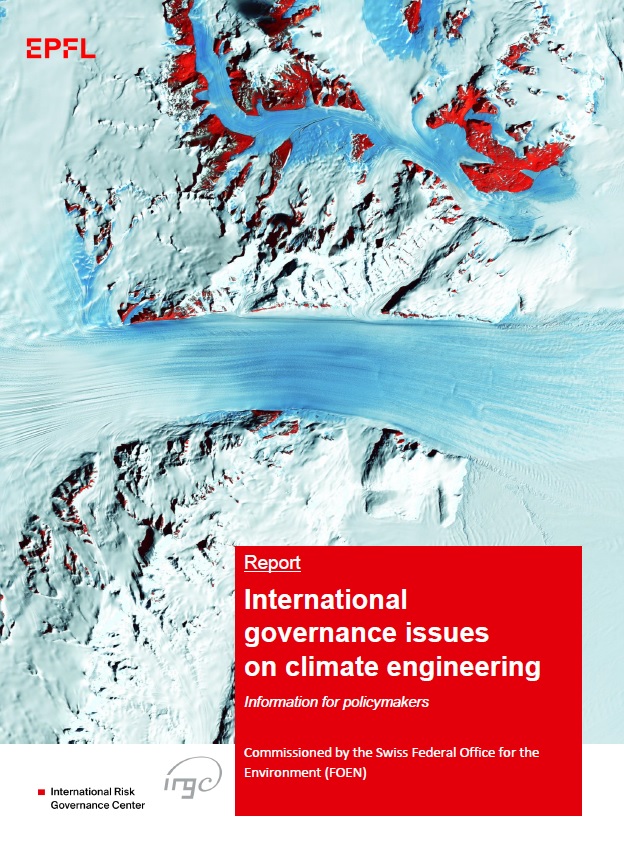Elements and Steps for Global Governance
This chapter evaluates possible options and approaches for potential future regimes on the international governance of climate engineering. Developing international governance of CDR and SRM – especially in case of their large-scale use – will be a long process across several decades. However, meaningful steps may need to be taken soon to lay a foundation for this lengthy, uncertain process. Furthermore, some shorter-term international governance actions – including of CDR’s and SRM’s research – could be beneficial.
The chapter offers explicit criteria for the assessment of governance options, including to reduce climate change and its impacts, contribute to sustainable development, support greenhouse gas emissions reductions, establish and maintain legitimacy, foster peace and stable international relations, and reflect current knowledge and adapt to changing conditions.
Possible governance sites – including but not limited to intergovernmental institutions – are then discussed. Among possible candidates, it is difficult to imagine the international governance of CDR and SRM without the climate change regime having a central role. Because the IPCC aims to be neutral with respect to policy, it can and should contribute to, but not take the lead in governance. The biodiversity regime is well-positioned to legitimately contribute to international governance that prioritizes sustainable development and poverty eradication, although its governance would largely be limited to that concerning impacts on biodiversity. Notably, UNEP’s mandate and capabilities include identifying emerging issues, conducting scientific reviews, and catalyzing international governance across issue areas and sectors. The creation of de-novo international process and decentralized governance should also be considered.
The chapter suggests possible substantive options for governance, which are to facilitate research; encourage the responsible use of CDR; regulate risks for sustainable development; further integrate with existing governance; build governance capacity; strengthen international cooperation; leverage the private sector; implement breakpoints, stage gates and moratoria; and establish a foundation for future decision-making.
The chapter closes with six specific recommendations:
- to distinguish between CDR and SRM as well as among the diverse CDR techniques in their additional dedicated governance;
- to accelerate authoritative, comprehensive, and international scientific assessment;
- to encourage the research, development, and responsible use of some CDR techniques;
- to help build capacity for evaluating CDR and SRM in some of those countries that lack the resources to do so
- to facilitate the elaboration and implementation of non-state governance; and
- to explore potential further governance of SRM while remaining agnostic concerning its ultimate use.

